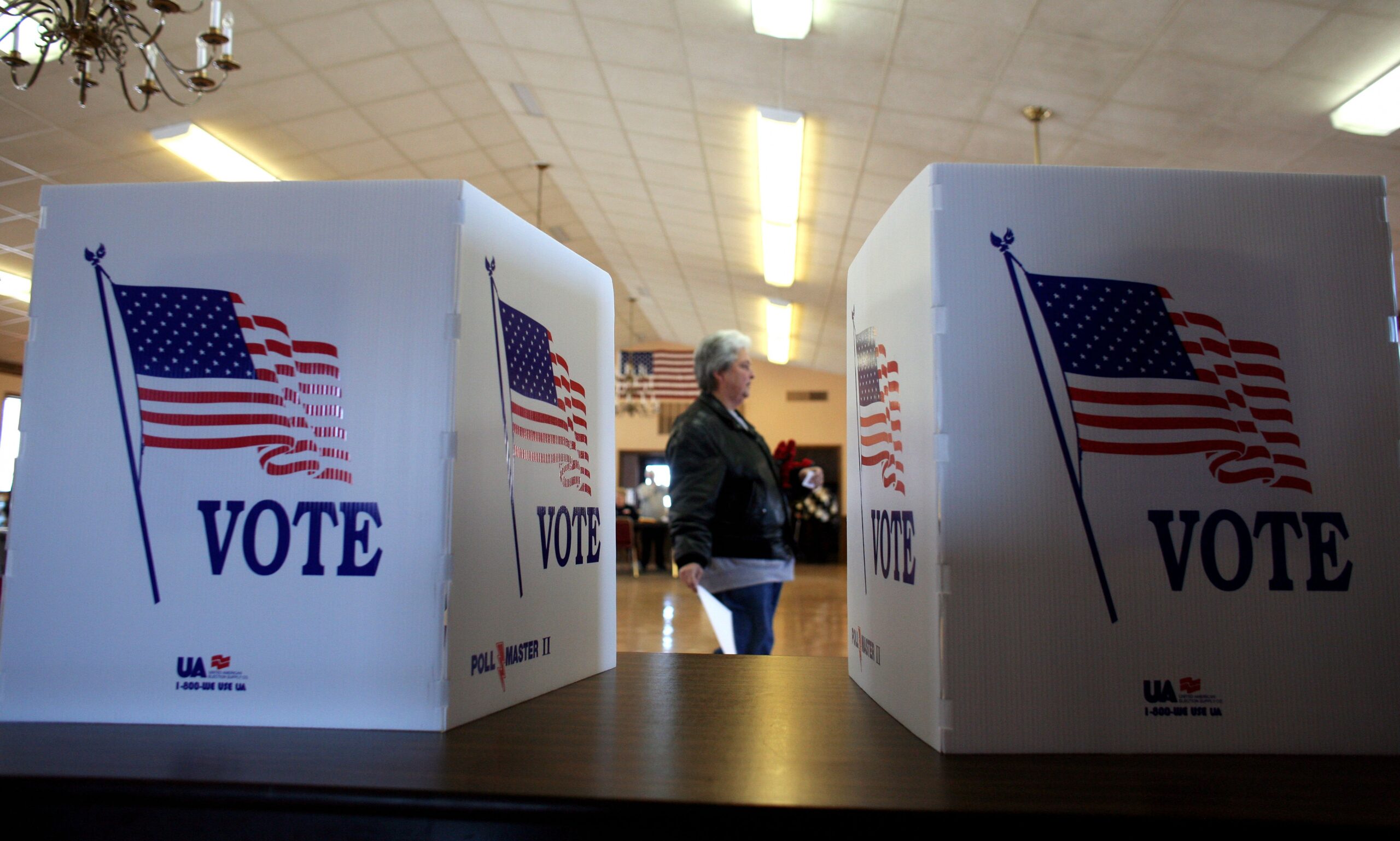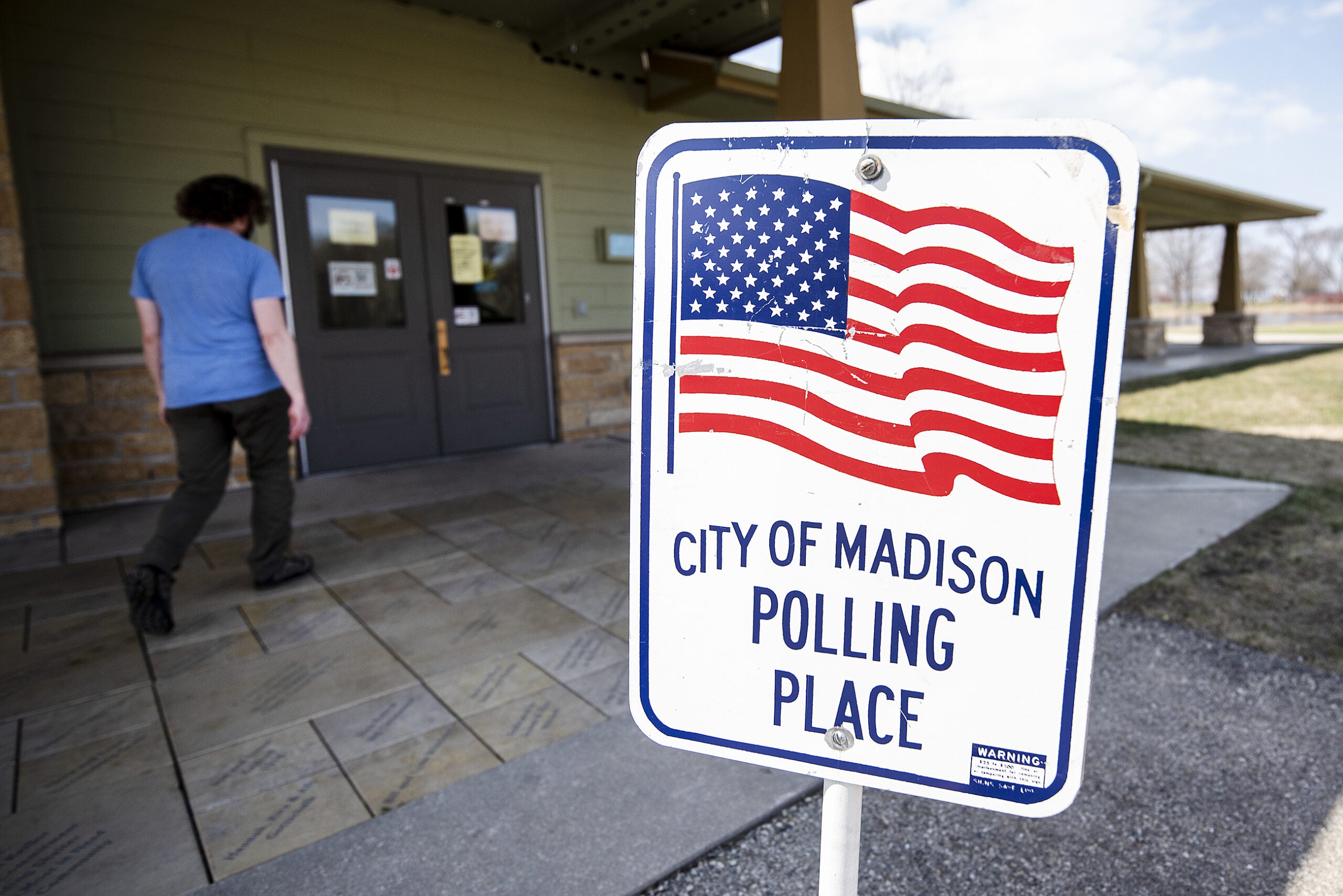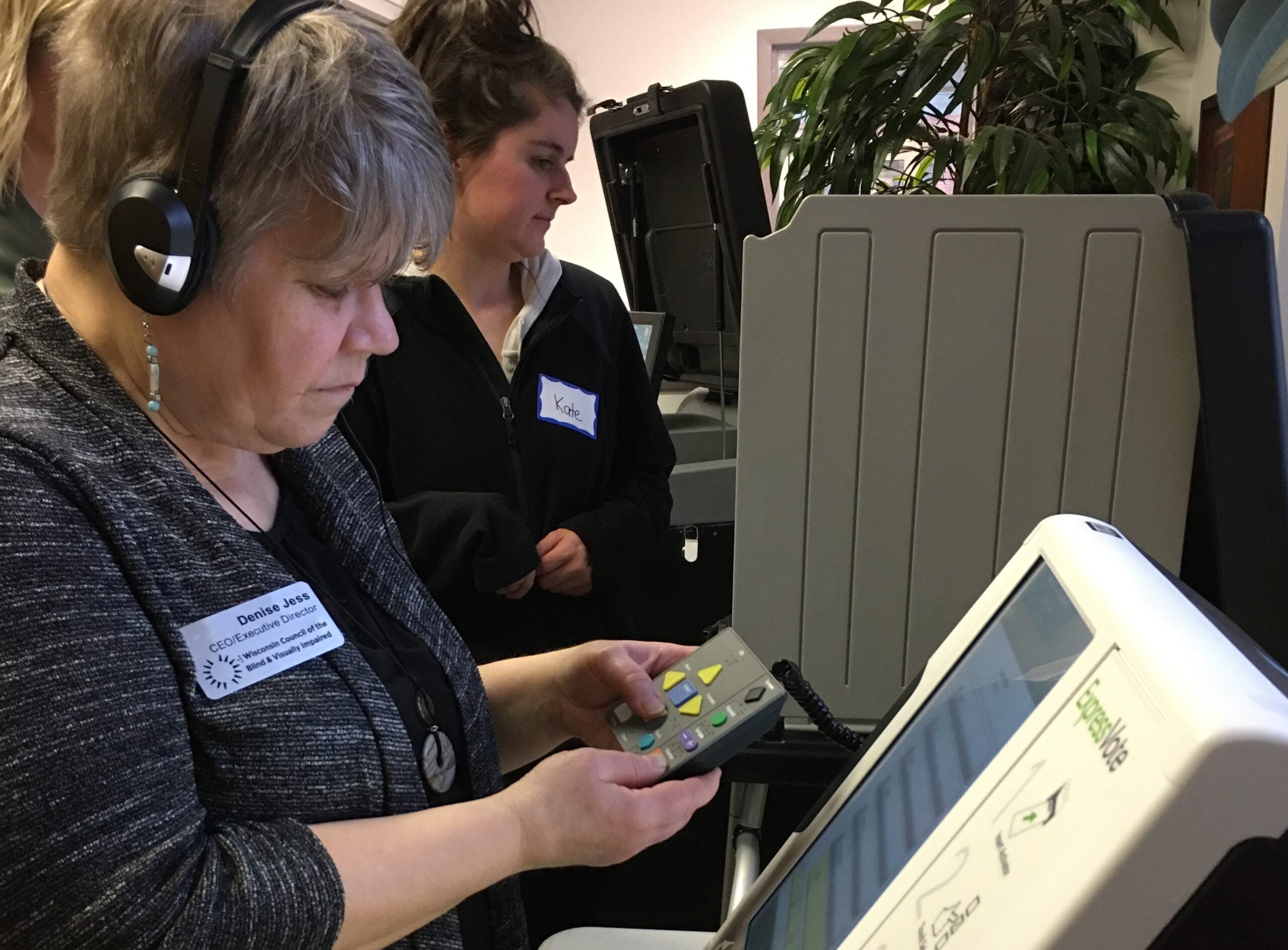Republican state lawmakers continued to dish out sharp criticism of the Wisconsin Elections Commission at a legislative hearing on Tuesday while the commission’s administrator and a number of advocacy groups came to the agency’s defense.
The hearing was called to review a recently released audit of 2020 election administration in Wisconsin. The audit, conducted by the Legislature’s nonpartisan Legislative Audit Bureau, was ordered by the GOP-controlled state Legislature shortly after the election. It found no widespread voter fraud or wrongdoing, but pointed out a number of shortcomings in elections administration by the Wisconsin Elections Commission and made dozens of recommendations for updating state policies and state laws related to elections.
None of the Wisconsin Elections Commission’s six commissioners — three of whom are appointed to the body by Democrats and three by Republicans — appeared at the hearing. The commission has yet to hold a meeting to discuss the audit’s findings, citing scheduling conflicts.
News with a little more humanity
WPR’s “Wisconsin Today” newsletter keeps you connected to the state you love without feeling overwhelmed. No paywall. No agenda. No corporate filter.
During the hearing, state Rep. John Macco, R-Ledgeview, said the commissioners’ absence, as well as the speed of their reaction to the audit, is unacceptable.
“We’re all sitting here cooling our jets,” Macco said. “I find it absolutely repugnant that nobody could show up.”
Wisconsin Democrats have argued the audit offers more proof there were no major problems with Wisconsin’s 2020 election, but Republicans have raised concerns with the outlined administrative shortcomings of the commission, as well as statements in the audit about the alleged refusal by some local election officials to physically turn over election-related documents to auditors.
According to the audit, the elections commission’s alleged administrative problems in 2020 included:
- Not setting official policies, which must be approved by state lawmakers, that establish the content of training for special voting deputies and election inspectors.
- Not getting electronic copies of signatures from the state Department of Transportation for people who registered to vote online.
- Issuing guidance to local election officials that the officials might adjourn before completing the counting of ballots on election night “as a result of inevitable circumstances.” State law makes no such allowance.
- Issuing guidance that local election officials might move polling places under certain circumstances. State law makes no such allowance.
- Issuing guidance that local election officials should not send special voting deputies into nursing homes and care facilities because of the COVID-19 pandemic, which conflicts with state law.
The report makes 30 recommendations to Wisconsin Elections Commission staff for policy changes and 18 recommendations to lawmakers for potential changes to state law.
Assembly Speaker Robin Vos, R-Rochester, has called for the resignation of Wisconsin Elections Commission administrator Meagan Wolfe following the audit, but Wolfe has refused to step down.
As soon as the report was released, Wolfe noted the commission wasn’t given early access to the document, as is typical state policy, and argued it contained a few inaccuracies that could have been avoided if such a review had been allowed.
She reiterated that point during Tuesday’s hearing.
“We should all want this to be an accurate record of the election,” Wolfe said. “There are good recommendations that we’re grateful for, in terms of a roadmap that we can easily implement, but there are errors.”
In the report, the audit bureau said it didn’t allow the commission to review the document ahead of its publication because of concerns about confidentiality. Auditors argued state law only allows governmental bodies like the Elections Commission to have private meetings on certain subjects, and those don’t include reviewing draft audit reports.
Wolfe said errors in the audit include statements about how often the state gets data from the Electronic Registration Information Center, or ERIC, a non-profit organization that helps states maintain the accuracy of its voter rolls.
“In particular, the ERIC data chart (in the audit) implies that Wisconsin missed many opportunities to obtain data,” Wolfe said in prepared testimony. “This is absolutely wrong.”
State Rep. Mark Born, R-Beaver Dam, pushed back on Wolfe’s concerns, calling it an unprecedented “attack on the audit bureau.”
“I’m very concerned with the initial tone of the reaction of the audit,” he said. “I don’t see where there are major problems with this audit, I don’t see the errors you were citing.”
State Sen. Melissa Agard, D-Madison, argued Republicans have “demonized” election officials in the wake of the audit and “poisoned the water” of potential discussions about improving election administration in the state.
“When you poison the water before you invite them to sit at the table, those conversations typically don’t go well,” she said.
A number of advocacy groups, including Disability Rights Wisconsin, the Wisconsin Democracy Campaign, Wisconsin Conservation Voters and the League of Women Voters of Wisconsin, spoke in support of the elections commission during the hearing.
Eileen Newcomer, voter education manager at the League of Women Voters of Wisconsin, said the commission has “proven that it is an important partner in maintaining the integrity of elections.”
“Over the last year, the Legislature has been focused on issues and nonexistent threats to our election that are neither productive nor evidence-based,” Newcomer said. “Elections are not perfect, but we applaud the dedicated work of the Elections Commission and clerks across the state for having record turnout with minimal issues, despite the pandemic.”
In addition to the potential follow-up on the audit, there is an ongoing election investigation spearheaded by Vos.
The investigations come after Wisconsin has completed a series of routine state election audits and a presidential recount in the state’s two largest counties. None of those reviews have uncovered widespread fraud or wrongdoing. There have also been numerous Republican-backed lawsuits in the state, all of which have failed to result in findings of wrongdoing by election officials or voters.
Biden won Wisconsin by about 21,000 votes — a margin similar to several other razor-thin statewide elections in recent years.
Wisconsin Public Radio, © Copyright 2025, Board of Regents of the University of Wisconsin System and Wisconsin Educational Communications Board.







